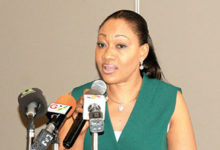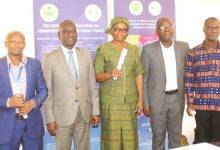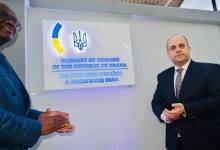The last few weeks have witnessed an intense debate on the propriety or otherwise of the country’s decision to allow Private Sector Participation (PSP) in the turnaround efforts of its power sector.
While there is a general consensus on the need for a PSP in the power sector, the bone of contention has been the processes leading to the entity being selected to undertake the job.
On March 1, the Millennium Development Authority (MiDA) which is the implementing agency for the Millennium Challenge Corporation (MCC), leading the processes in Ghana, approved the Power Distribution Services (PDS) over others to perform that duty.
In line with the terms of the Compact and as a precondition for the country to access the MCC funds estimated at about $500million, the government signed the concession agreement with PDS to enable it commences work.
However, barely four months into its operations, the government raised the red flag signalling that some breaches in terms of the condition precedent for the consummation of the contract have been detected.
The government subsequently, suspended the operations of PDS pending an independent investigation into the matter so as to establish the level of the supposed breaches.
The breaches we are told involved a fictitious Insurance Guarantee issued by a Qatari based insurance company on behalf of PDS.
Following the investigations, the government arrived at the conclusion that the supposed breaches were weighty enough to call for the termination of the concession agreement. The government subsequently notified the MCC of its decision to terminate the agreement.
The announcement of government decision over the last three days seems to have ruffled a lot of feathers both within and without the country. Several individuals including; Civil Society Organisations (CSOs), political party actors and industry players have expressed divergent views about the decision.
While some are of the view that the whole process from its very inception was botched with controversies and for that matter should not have taken place at all, others feel it is a vindication of their stands against the choice of PDS as the entity for the concession.
In spite of these, there are others who also feel that what has been presented as breaches after the independent investigation by the government were not strong enough for the government to go ahead to terminate the agreement.
In the midst of the debate, yesterday, government through the Minister of Information announced that it had terminated the concession agreement, and processes have already commenced for the transfer of assets back to the ECG.
The government also announced that as a result of its decision to terminate the agreement, the country has also forfeited the last tranche of $190million of the Compact II. While it describes the forfeiture of the $190million as painful, it explained that the decision is in the larger interest of the country and the citizens.
Following the announcement by the government, the debate and the blame game have become intense, however, it is important that as a people we come to the realisation that we cannot continue to cry over spilt milk.
What we need now is to build consensus on the way forward for the country in terms of what we need to do with ECG. Though the argument on all sides seems to make sense, it is imperative to emphasise that no matter the gravitas of one’s argument, the fact still remains that government has terminated the contract and the country has lost a whopping $190million.
It is the considered opinion of the Ghanaian Times that whilst we cannot continue to cry over spilt milk; it is equally important that we put in place immediate measures to ensure that we do not slip down the slippery slope.
In this case we believe that the one who must lead the processes of consensus building must be the President of the Republic. We believe the President as he has demonstrated over time must seize the opportunity and rally the support of all Ghanaians irrespective of their opinion to chart a new course for ECG which is a strategic national asset.
We believe that in spite of the fall outs, the PDS has taught all of us that the ECG is not a dead entity as we have been made to believe and that with the right management and liquidity support, ECG can become the most viable electricity distribution company in the world.







